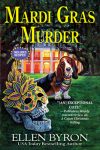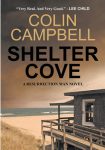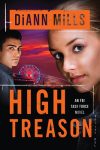

October 1 – 7: “Besides Google, what’s your most common research tool?”
 Sure, Google is the world’s most popular search engine, but besides Google, what’s your most common research tool? We kick off October with ITW Members Colin Campbell, Ellen Byron, Lee Murray and DiAnn Mills as they discuss what tools they use for research. Scroll down to the “comments” section to follow along.
Sure, Google is the world’s most popular search engine, but besides Google, what’s your most common research tool? We kick off October with ITW Members Colin Campbell, Ellen Byron, Lee Murray and DiAnn Mills as they discuss what tools they use for research. Scroll down to the “comments” section to follow along.
 Lee Murray is an award-winning writer and editor (Sir Julius Vogel, Australian Shadows). Her latest thrillers include New Zealand military thriller INTO THE SOUNDS (Severed Press), and supernatural crime-noir, TEETH OF THE WOLF (Raw Dog Screaming Press) co-authored with Dan Rabarts. HELLHOLE, a volume of subterranean thriller stories, including novelettes from Jonathan Maberry, Michael McBride, and Sean Ellis, is forthcoming from Gryphonwood Press in December.
Lee Murray is an award-winning writer and editor (Sir Julius Vogel, Australian Shadows). Her latest thrillers include New Zealand military thriller INTO THE SOUNDS (Severed Press), and supernatural crime-noir, TEETH OF THE WOLF (Raw Dog Screaming Press) co-authored with Dan Rabarts. HELLHOLE, a volume of subterranean thriller stories, including novelettes from Jonathan Maberry, Michael McBride, and Sean Ellis, is forthcoming from Gryphonwood Press in December.
 Ellen Byron writes the Cajun Country Mystery series. A Cajun Christmas Killing and Body on the Bayou both won the Lefty Award for Best Humorous Mystery and were nominated for Agatha awards. Plantation Shudders was nominated for Agatha, Lefty, and Daphne awards. Mardi Gras Murder, just released, was deemed a “winner” by Publishers Weekly. Ellen’s TV credits include Wings, Just Shoot Me, and Fairly OddParents; published plays include the award-winning Graceland.
Ellen Byron writes the Cajun Country Mystery series. A Cajun Christmas Killing and Body on the Bayou both won the Lefty Award for Best Humorous Mystery and were nominated for Agatha awards. Plantation Shudders was nominated for Agatha, Lefty, and Daphne awards. Mardi Gras Murder, just released, was deemed a “winner” by Publishers Weekly. Ellen’s TV credits include Wings, Just Shoot Me, and Fairly OddParents; published plays include the award-winning Graceland.
 Ex-army, retired cop and former scenes of crime officer Colin Campbell is the author of British crime novels Blue Knight White Cross, and Northern Ex, and US thrillers Jamaica Plain, Montecito Heights, Adobe Flats and Snake Pass. His Jim Grant thrillers bring a rogue Yorkshire cop to America where culture clash and violence ensue.
Ex-army, retired cop and former scenes of crime officer Colin Campbell is the author of British crime novels Blue Knight White Cross, and Northern Ex, and US thrillers Jamaica Plain, Montecito Heights, Adobe Flats and Snake Pass. His Jim Grant thrillers bring a rogue Yorkshire cop to America where culture clash and violence ensue.
 DiAnn Mills is a bestselling author who believes her readers should expect an adventure. She combines unforgettable characters with unpredictable plots to create action-packed, suspense-filled novels. Her titles have appeared on the CBA and ECPA bestseller lists; won two Christy Awards; and been finalists for the RITA, Daphne Du Maurier, Inspirational Readers’ Choice, and Carol award contests. Firewall, the first book in her Houston: FBI series, was listed by Library Journal as one of the best Christian Fiction books of 2014.
DiAnn Mills is a bestselling author who believes her readers should expect an adventure. She combines unforgettable characters with unpredictable plots to create action-packed, suspense-filled novels. Her titles have appeared on the CBA and ECPA bestseller lists; won two Christy Awards; and been finalists for the RITA, Daphne Du Maurier, Inspirational Readers’ Choice, and Carol award contests. Firewall, the first book in her Houston: FBI series, was listed by Library Journal as one of the best Christian Fiction books of 2014.
- LAST GIRL MISSING with K.L. Murphy - July 25, 2024
- CHILD OF DUST with Yigal Zur - July 25, 2024
- THE RAVENWOOD CONSPIRACY with Michael Siverling - July 19, 2024
